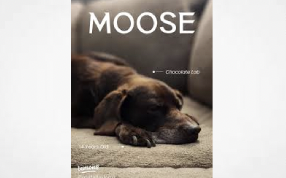RENTON, NJ — Legislation that would prohibit people convicted of animal cruelty offenses from owning domestic companion animals and from working or volunteering at animal-related enterprises — for-profit or non-profit endeavors that require or involves hands-on contact or direct interaction with animals —has passed the New Jersey State Senate.
S-3746, or “Moose’s Law”, sponsored by Senator Troy Singleton (D-Burlington) and Senator Shirley Turner (D-Mercer/Hunterdon) unanimously passed the Senate on January 14 by a 34-0 vote.
“Animal abuse is one of the most abhorrent crimes an individual can commit, and more needs to be done to hold offenders accountable,” said Senator Singleton, who represents Bordentown in the Legislature. “According to the Humane Society, 86 percent of those charged with animal cruelty have previously been arrested for it. This legislation will help to ensure that these repeat offenders are not able to continue their patterns of abuse.”
Moose’s Law” stems from a 2013 incident in Delran in which a novice dog trainer stole a 3-year-old chocolate labrador named Moose and sold him. While training the dog for the new owners, the individual left the dog in a hot car to die.
The bill would require, upon the conviction of a person for a criminal animal cruelty offense, the forfeiture of any animal owned by the offender and the transfer of the animal to the custody of an animal shelter, unless the animal is co-owned by a person who does not live with the offender. In that case, the animal would be transferred to the custody of the co-owner.
The legislation would direct the court to issue an order prohibiting the offender from acquiring, owning, or residing with any animal for: A period of not less than two years following the date of the offender’s conviction for the offense, or following the date of the offender’s release from incarceration for the offense, whichever is later; The duration of the probationary period imposed by the court for the offense, if that period will last for two years or longer; Any more extended period of time, which the court, in its discretion, determines to be appropriate based on the nature and severity of the offense, the offender’s prior history of animal cruelty offenses, and any other relevant factor.
Under the bill, the court would also be directed to order the offender to refrain from commencing, operating, or applying for employment or volunteering at an animal-related enterprise for a period of time to be determined by the court, based on the nature and severity of the offense, as well as the offender’s prior history.
The offender would be allowed to petition the court to reduce the duration of this order with evidence of the offender’s rehabilitation in their treatment of animals.




